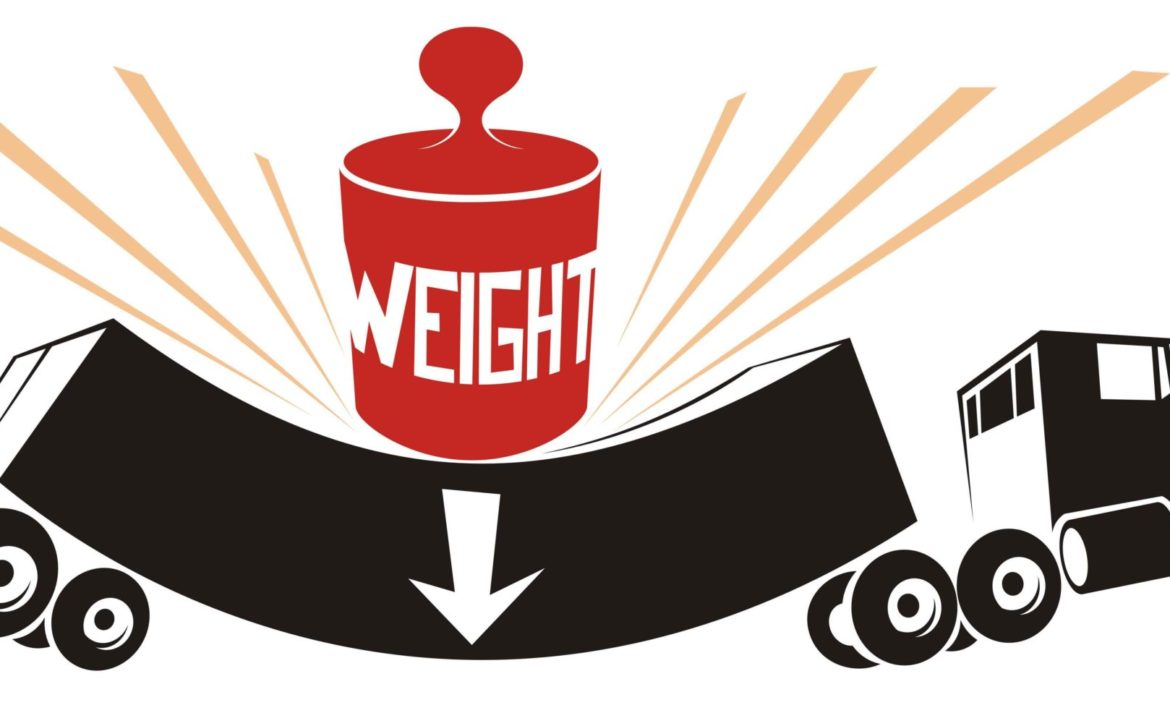Consider this article similar to a physician’s advice about your health as a motor carrier – including the health of your equipment and safety program. Truck size and weight affect the health of all three.
Truck size and weight, as the word “and” indicates, comes in two parts:
- Size refers to the overall truck combination length, width, and height, plus the number and dimensions of the combination components, the tractor, and trailer(s).
- Weight goes to the overall (“gross”) weight of the truck combination, plus the weights of axles and axle configurations (e.g., tandem and tridem axles) and the “interior bridge” limits – weight allowance per distances between axles.
Why, in this world of innovation, do we even have truck size and weight limits?
- First, they help highway and bridge designers know what equipment will be on the highways. That can affect everything from pavement and bridge design to the curvature of roads.
- Truck size and weight limits provide vehicle and component manufacturers and equipment regulators with target goals for their efforts.
- History tells us that competing freight modes – railroads and maritime – have an interest in restraining trucking productivity.
- At the same time, uniformity in truck size and weight limits allows better freight movement planning and ensures some competitive fairness between motor carriers.
But there is more to truck size and weight limits than just understanding why such regulations exist. Truck size and weight affect your health as a motor carrier, the health of your equipment, and even the health of your safety program.
Your health as a motor carrier:
- Violating truck size and weight limits brings significant fines. Those fines vary by state, usually starting low for marginal weight violations and increasing exponentially for larger violations. For truck drivers, size and weight violations can include points against their Commercial Driver’s License (CDL).
- Overweight and overlength violations can also trigger mandatory unloading or truck combination disassembly. That means providing, at your time and expense, another truck combination to pick up the excess freight or a tractor to ferry away the excess equipment.
- While exceeding truck size and weight limits may be regarded as a non-moving violation, there will be an ensuing inspection of the driver and equipment to see what else may be wrong, the results of which may go against your safety record.
The health of your equipment:
- Every component of a truck combination, from axles to brakes to tires, is built to withstand ordinary use over time. The “ordinary use” relates to the truck size and weight limits you operate under.
- Overload a truck and you increase component wear, shortening life and increasing maintenance costs.
- Severely overload a truck and a component may outright fail, possibly with dire consequences.
- Violating truck size and weight limits means shorter component life, increased maintenance costs, and potential liability.
The health of your safety program:
- Overloading increases truck stopping distance, contributing to crashes.
- Excess weight and improper loading affect truck handling, limiting safe operations.
- Overheight or overlength truck combinations simply don’t fit everywhere – not under some bridge clearances nor in some truck parking slots. Bridge strikes and tired drivers are not the features of a good safety program.
- Don’t think truck size and weight limit violations will go unnoticed. Truck weights can be recorded at highway speeds. Truck lengths are laser-measured as the combination traverses a weigh station entry lane.
What you can do:
- Consider adding scales in your yard to check truck combinations after loading.
- Use commercial truck scales; some provide verified weights to a convenient app.
- Know your customers. Routinely audit shipments for weight, count, and volume.
This blog is published as a public service of PrePass®, the most reliable and technologically advanced weigh station bypass and electronic trucking toll payment platform in North America. PrePass also includes INFORM™ Safety and Tolling software for improving truck safety scores and lowering toll costs. Visit the PrePass website and learn more.
